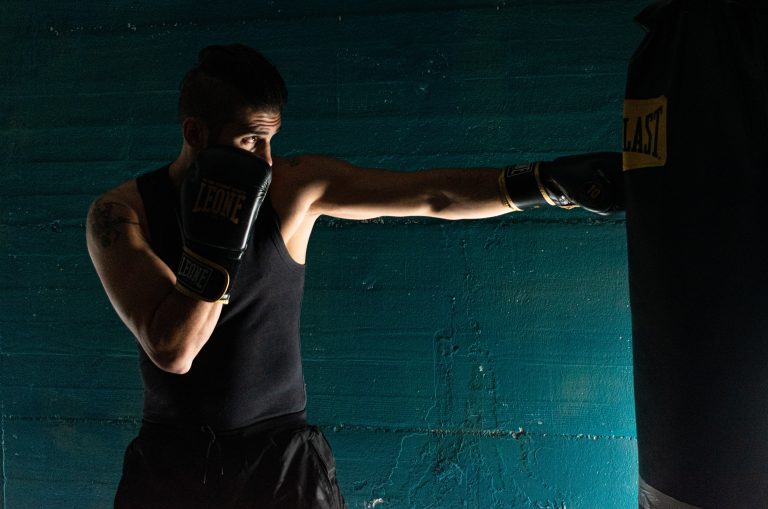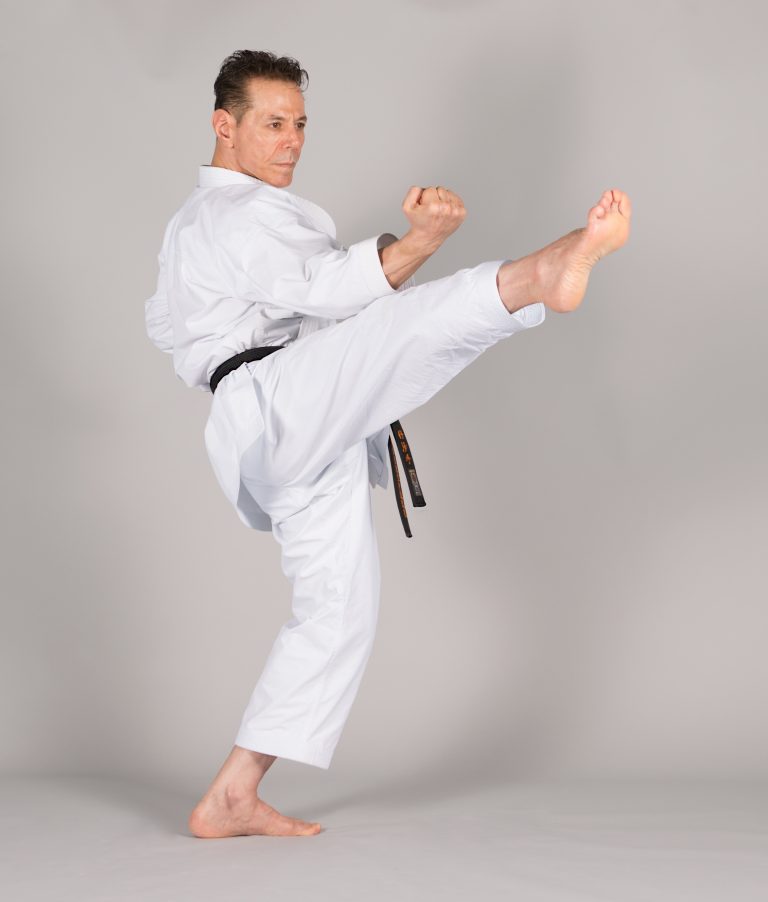What is Karate Called in English?
Karate is a martial art form that originated in Okinawa, Japan. The word „karate“ is a combination of two words; „kara“ and „te“, which means empty hand in English. Karate is the practice of unarmed self-defense and involves a series of moves and techniques that require physical training, discipline, and mental focus.
As karate originated in Japan, the original name for karate is in Japanese. However, today, karate is practiced all over the world and is known by different names in different languages. In English, karate is still referred to as karate, but there are other variations of the name used in different languages.
Karate in Different Languages
Here are some examples of how karate is known in different languages:
– Japanese: Karate (空手)
– Chinese: Kong Shou Da (空手道)
– Korean: Gong Kwun Do (공권도)
– Spanish: Karate (pronounced kah-rah-tay)
– French: Karaté (pronounced kah-rah-tay)
– German: Karate (pronounced kah-rah-tay)
– Italian: Karate (pronounced kah-rah-tay)
The History of Karate
The history of karate dates back to the Ryukyu Kingdom, which is now modern-day Okinawa, Japan. The practice of karate started as a form of self-defense for the indigenous people of the kingdom against invading forces.
Karate was originally known as „Tang Te,“ which means „China Hand“ in Chinese, as the Ryukyu Kingdom had close trade ties with China, and Chinese martial arts influenced the formation of karate.
In the late 19th century, karate became popularized in Japan, and it was during this time that the term „karate“ became widespread. Karate was introduced to the rest of the world in the mid-20th century and has since become a popular form of martial art with millions of practitioners worldwide.
The Benefits of Practicing Karate
Karate is an excellent form of physical exercise that provides a range of benefits, including:
1. Improved physical fitness – The physical movements and techniques used in karate training help to tone muscles, improve endurance, flexibility, and overall physical fitness.
2. Increased confidence – Karate training instills self-discipline, mental focus, and a sense of responsibility, which can help to improve confidence levels.
3. Stress relief – Practicing karate is a great way to relieve stress and tension. The mental focus required during training sessions helps to clear the mind and provide a sense of calm.
4. Self-defense skills – Karate training focuses on practical self-defense skills that can be applied in real-life situations, providing practitioners with the ability to protect themselves and others.
What is Karate Called in English?
For most people, martial arts, which is also known as karate, is a popular sport across the globe. It is a traditional form of fighting that originated in Japan in the early 20th century. Karate is a form of unarmed combat that emphasizes defensive and counterattacking skills that martial artists use to defend themselves in combat. In this blog post, we will explore some of the most frequently asked questions about Karate’s English name.
What is the origin of the word Karate?
Karate originates from the Ryukyu Islands in Japan, specifically Okinawa, where it was developed in the early 20th century. The word „karate“ is a compound of two Japanese characters: „kara,“ which means „empty,“ and „te,“ which means „hand.“ So, karate means „empty hand“ or „open hand“ in English. It is a form of self-defense that practitioners used without weapons.
What is Karate Called in English?
Karate, as it is traditionally known, has a Japanese name. However, when translating the Japanese characters into English, the most widely accepted way to call karate is „karate.“
Many martial arts have regional names, and Karate is no exception. For instance, in Korea, it is called Kong Soo Do or Tae Kwon Do, and in China, it is called Kung Fu. However, regardless of regional names, Karate is uniformly known worldwide as Karate.
Is Karate a Sport or a Martial Art?
Karate is both a martial art and a competitive sport. Technically, it is a striking art, that involves the use of the hands, feet, knees, elbows, and open hands for delivering strikes to the opponent’s body, head, and face.
Karate’s intended function is as a self-defense method rather than a competitive sport. However, many Karate practitioners worldwide actively compete in tournaments and championships, where individuals and team-based katas are performed. Participants put their karate abilities and techniques to the test while contending for victory against other practitioners.
What Does a Karate Class Involve?
A conventional Karate class will include various components that are aimed at achieving both physical and mental fitness. The following things are usually included in a Karate class:
Warm-up Exercises
The classes start with a warm-up session made up of light physical activities like stretching and aerobic exercises such as jumping jacks, leg raises, and other exercises to prepare the body for more strenuous activities.
Basic Techniques Practice
Karate classes focus strongly on a wide range of basic techniques such as kicks, blocks, strikes, and stances. Their primary aim is to develop solid movement and balance in students, as well as improved general physical fitness.
Kata
Kata is a sequence of preset movements that mimic different defensive situations. Karate students learn these movements and execute them to improve their application of skills and self-defense techniques.
Kumite
Kumite is the practice of fighting with other students while wearing protective gear. It is also known as „sparring.“ The aim is to put into practice the skills and techniques you have learned while sparring with a partner.
Final Thoughts
Karate, as a traditional form of martial arts, is an effective method of self-defense that can be used to build strength, balance, and confidence. It is known worldwide by its original name, Karate, in English, regardless of what it may be called regionally.
If you’re new to Karate, you can expect to participate in a rigorous workout that will focus on both physical conditioning and mental discipline. Karate classes incorporate many different activities, so you can expect to learn a range of techniques, respect your instructor and classmates, and feel prepared to defend yourself.
What is Karate Called in English?
Karate, a Japanese martial art, has become increasingly popular worldwide in recent years. Many people may wonder what the term „karate“ means and what it is called in the English language. This article will provide you with a comprehensive overview of karate, including its history, meaning, and English translations.
The History of Karate
Karate is a martial art that originated in the Ryukyu Kingdom, now Okinawa, Japan. It was developed from indigenous fighting techniques and Chinese martial arts. In the early 20th century, karate began to spread to mainland Japan and eventually, the rest of the world.
What Does Karate Mean?
The word „karate“ is Japanese, consisting of two Chinese characters: kara (空), meaning „empty,“ and te (手), meaning „hand.“ Thus, karate literally means „empty hand,“ which refers to the fact that karate practitioners use no weapons in their fighting techniques.
Karate in the English Language
In the English language, karate is the most common translation for the Japanese term. However, there are other translations that are also used. For example:
Kung Fu
Kung Fu is a term that is often used as a synonym for karate in English. However, this term actually refers to Chinese martial arts and is not a correct translation for karate.
Combat Tae Kwon Do
Combat Tae Kwon Do is another term that is sometimes used for karate in English. However, Tae Kwon Do is a Korean martial art and not a correct translation for karate.
Japanese Boxing
Japanese Boxing is a term that is not commonly used today, but it was popular in the early 20th century. It refers to a style of fighting that was derived from karate, which involved using punches and kicks but without much of the grappling and throwing of traditional karate.
Conclusion
Karate is a popular martial art worldwide that originated in Okinawa, Japan. The term „karate“ means „empty hand“ in Japanese and refers to the fact that karate practitioners use no weapons in their fighting techniques. In the English language, karate is the most common translation for the Japanese term, but other translations such as Kung Fu or Combat Tae Kwon Do are sometimes used. It is important to understand the correct translation of terms to avoid confusion and ensure accuracy when discussing martial arts.
Inhaltsverzeichnis





